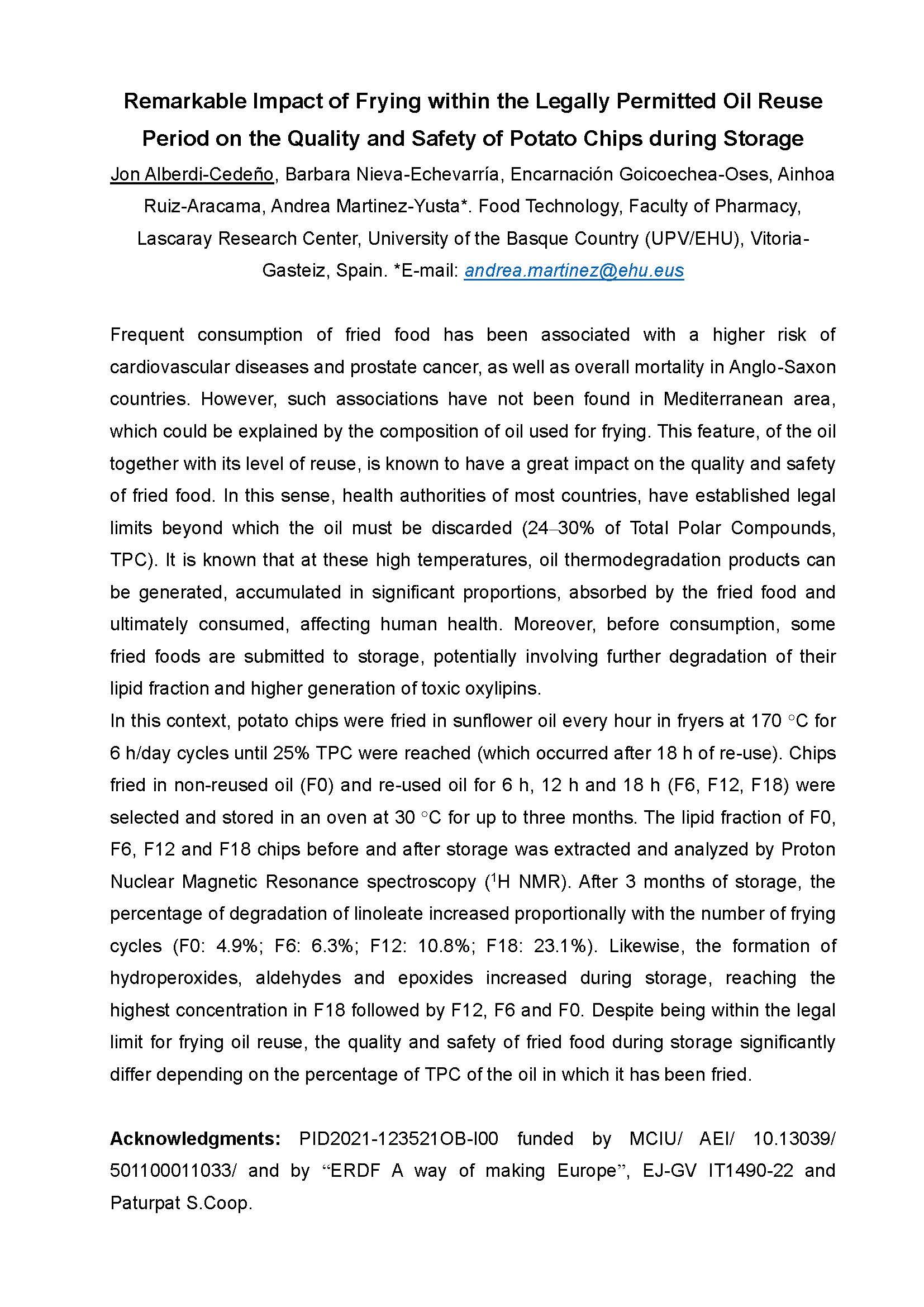Frequent consumption of fried food has been associated with a higher risk of cardiovascular diseases and prostate cancer, as well as overall mortality in Anglo-Saxon countries. However, such associations have not been found in Mediterranean area, which could be explained by the composition of oil used for frying. This feature, of the oil together with its level of reuse, is known to have a great impact on the quality and safety of fried food. In this sense, health authorities of most countries, have established legal limits beyond which the oil must be discarded (24–30% of Total Polar Compounds, TPC). It is known that at these high temperatures, oil thermodegradation products can be generated, accumulated in significant proportions, absorbed by the fried food and ultimately consumed, affecting human health. Moreover, before consumption, some fried foods are submitted to storage, potentially involving further degradation of their lipid fraction and higher generation of toxic oxylipins.
In this context, potato chips were fried in sunflower oil every hour in fryers at 170 °C for 6 h/day cycles until 25% TPC were reached (which occurred after 18 h of re-use). Chips fried in non-reused oil (F0) and re-used oil for 6 h, 12 h and 18 h (F6, F12, F18) were selected and stored in an oven at 30 °C for up to three months. The lipid fraction of F0, F6, F12 and F18 chips before and after storage was extracted and analyzed by Proton Nuclear Magnetic Resonance spectroscopy ( 1H NMR). After 3 months of storage, the percentage of degradation of linoleate increased proportionally with the number of frying cycles (F0: 4.9%; F6: 6.3%; F12: 10.8%; F18: 23.1%). Likewise, the formation of hydroperoxides, aldehydes and epoxides increased during storage, reaching the highest concentration in F18 followed by F12, F6 and F0. Despite being within the legal limit for frying oil reuse, the quality and safety of fried food during storage significantly differ depending on the percentage of TPC of the oil in which it has been fried.
Acknowledgments: PID2021-123521OB-I00 funded by MCIU/ AEI/ 10.13039/ 501100011033/ and by “ERDF A way of making Europe”, EJ-GV IT1490-22 and Paturpat S.Coop.
